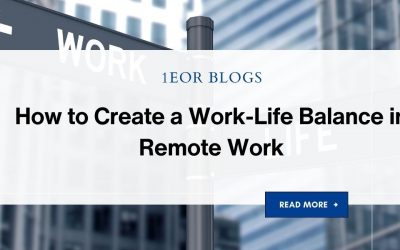Distributed teams have become a hallmark of modern business practices, providing significant advantages such as cost savings, enhanced employee engagement and retention, and access to a global talent pool. Embracing remote work has allowed companies to tap into diverse and skilled professionals across different regions. For those looking to extend their team beyond local boundaries, India presents a compelling opportunity. The country offers a vast array of talented individuals at competitive rates. However, navigating the complexities of hiring in India can be challenging, particularly for small businesses, due to intricate regulations and bureaucratic hurdles. Fortunately, leveraging an Employer of Record (EOR) can simplify this process and provide a seamless hiring experience.
5 Steps to Hiring Employees in India Using an Employer of Record
Step 1: Evaluate Potential EOR Partners
Begin by assessing various EOR service providers in India. Different EORs offer varied services, and understanding their specific offerings will help you choose the best fit for your business needs. Some EORs operate through their own entities in India, while others may rely on third-party vendors. Evaluate each provider’s strengths and weaknesses, and consider how they align with your business operations. Ensure that the EOR can deliver an excellent employee experience and maintain high security standards to protect your intellectual property.
Step 2: Select the Most Suitable EOR
Choose an EOR that best matches your operational requirements. Each EOR provider has a unique approach, and selecting one that aligns with your business model is crucial. Ensure that the chosen EOR offers comprehensive services and a robust framework for managing employees in India. Verify that they can provide a high level of support and adhere to local compliance standards, safeguarding your interests and those of your employees.
Step 3: Review Provider Feedback
Thoroughly investigate the reviews, testimonials, and reputation of your shortlisted EOR providers. While some may showcase glowing reviews on their websites, it’s important to seek out independent feedback from third-party review platforms, forums, and press coverage. Contacting previous clients can provide valuable insights into the provider’s service quality and reliability. This due diligence will help you make an informed decision and avoid potential pitfalls.
Step 4: Assess Employee Experience
The EOR you select will be the face of your company to your Indian employees. Therefore, it’s essential that the EOR provides a top-notch employee experience. Poor service or mismanagement by the EOR can negatively impact your company’s reputation. Ensure that the EOR offers fair compensation, adheres to local labor laws, and delivers an experience that reflects positively on your organization.
Step 5: Collaborate Effectively with Your EOR
Successful collaboration with your EOR requires clear and consistent communication. Work closely with your EOR to ensure that your employees receive competitive and equitable compensation packages. The EOR should factor in local labor laws, the employee’s role, and experience when structuring compensation. Establish a strong partnership to streamline processes and address any issues that may arise.
Benefits of Using an Employer of Record in India
Hiring employees in India from abroad presents various challenges, primarily due to legal and administrative complexities. Establishing a local entity in India is a viable option for long-term expansion but may not be practical for small businesses due to high costs. An EOR can facilitate hiring in India without necessitating the creation of a local entity. By outsourcing employment management to an EOR, businesses can streamline operations and ensure compliance with local regulations.
An EOR offers a range of services, including:
- Visa and Work Permits: Handling visa applications and work permits for Indian employees.
- Taxes and Social Security: Managing tax obligations and social security contributions.
- Payroll Management: Processing payroll in compliance with local laws.
- Benefits Administration: Overseeing employee benefits and ensuring compliance with statutory requirements.
- Contractor Management: Managing relationships with contractors, if applicable.
- Employee Termination: Handling the legal aspects of employee terminations.
- Employee Stock Options: Distributing stock options, if applicable.
Utilizing an EOR allows businesses to focus on fostering relationships with their Indian employees rather than dealing with administrative and compliance issues.
Cost Considerations for Using an EOR in India
The cost of employing an EOR in India can vary based on several factors, including location, the scope of services, and billing arrangements. Additional surcharges and minimum employee requirements may apply. It’s important to recognize that the EOR fee is only a part of the total cost of employment (TCE). TCE includes not just the EOR’s fee but also social security contributions and other statutory obligations.
Providers with established reputations may charge higher rates, while newer providers might offer lower costs. However, it’s crucial to ensure that lower fees do not compromise compliance and security standards. Beware of potential hidden fees, especially with providers that rely on third parties. Opt for an EOR that offers transparent pricing and robust compliance measures.
Navigating Indian Employment Laws
Hiring in India necessitates a thorough understanding of local labor laws, which are governed by both central and state governments. Indian labor laws encompass a complex array of regulations, and non-compliance can result in significant penalties. Employers must be diligent in managing employee benefits and compensation according to local requirements.
- Employment Contracts: Although not universally mandated, written employment contracts are common practice in India. Some states, such as Delhi and Karnataka, require written contracts for non-manufacturing sectors. Contracts should detail salary, benefits, and job responsibilities to avoid ambiguities. Fixed-term contracts are permitted and should specify the duration and terms of employment.
- Labor Law Compliance: Indian labor laws are designed to protect employee welfare. Small and medium businesses can self-certify compliance through an online portal. India’s labor code has recently been updated, introducing new regulations that necessitate legal consultation to ensure adherence.
- Payroll and Taxes: Payroll is regulated by the Payment of Wages Act, 1936, requiring payments in Indian rupees. While there are new tax regimes with reduced rates, businesses must be aware of changes in tax exemptions and allowances.
- Employee Benefits and Compensation: The Code on Wages 2019 has simplified wage regulations, consolidating various definitions into a single framework. Benefits and compensation vary depending on employment contracts, industry, and state regulations. Ensuring fair compensation and an attractive benefits package is essential for attracting and retaining talent.
- Severance Pay and Terminations: Indian labor laws do not support at-will employment. Employees terminated without cause are entitled to a minimum of 30 days’ notice or pay in lieu. Additional severance, known as gratuity, is available for employees with over five years of service.
Risks of Employee Misclassification
Misclassifying workers as independent contractors instead of employees can lead to significant legal and financial repercussions. Misclassified contractors are not covered by labor laws, potentially resulting in penalties, back wages, and legal issues. Correct classification is critical to avoiding these risks.
Employing an EOR can mitigate misclassification risks, as they have expertise in local employment laws and ensure proper classification of workers. By leveraging the knowledge of EORs, businesses can avoid the complexities of worker classification and maintain compliance with Indian regulations.
Getting Started with an EOR in India
Expanding your team to include Indian professionals can be highly advantageous. With advancements in technology and global employment solutions like Remote, hiring internationally has become more accessible and manageable. Remote’s EOR services simplify the hiring process by handling employee benefits, payroll, and compliance, allowing businesses to focus on growth.
Remote offers:
- Efficient Onboarding: A streamlined onboarding process taking up to 9 working days.
- Unified Platform: A user-friendly platform for managing employees and contractors.
- Data Security: High-level security for protecting company data and intellectual property.
- Compliance: Ongoing adherence to evolving Indian labor laws.
For businesses ready to explore the Indian talent pool, 1EOR provides a comprehensive solution to navigate the complexities of international hiring. Sign up with 1EOR to begin onboarding your new Indian employees and experience the benefits of a global workforce.


